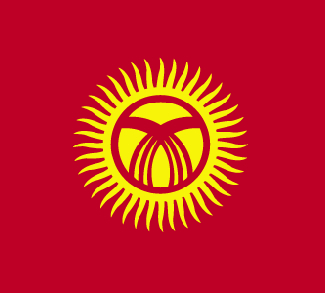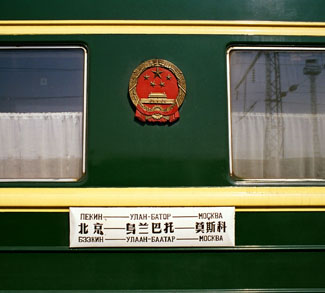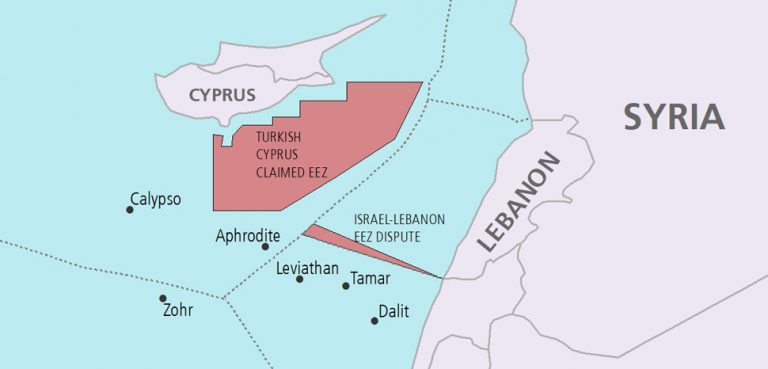The idea of ‘Russian territory’ extends far beyond internationally accepted borders, as the world witnessed when Russian troops stormed into Ukraine. ‘Russian territory,’ in the Kremlin’s mind at least, extends across most of the former Soviet Union, particularly in the pockets that still harbor pro-Russian sentiments.
So when the United States leased the Manas airbase from Kyrgyzstan in 2001 to assist with operations in Afghanistan, Moscow was hardly impressed. But for the sake of international solidarity in the wake of the September 11 attacks, the Russian government held its tongue.
But Russian patience with a US presence in its former satellite state has been wearing thin, and in the last two years Moscow has stepped up pressure on Kyrgyz officials in Bishkek to rebuff the United States and expel American forces from the Manas air base.
On the one hand, the hefty paycheck received by the Kyrgyz government in rent from Washington was a major boost to the country’s struggling economy, which remains heavily reliant on agriculture and the resale of Chinese goods. But on the other hand, there have been many thorny issues surrounding Manas, especially concerning the supply of fuel to the airbase and the alleged involvement of the son of then-leader Kurmanbek Bakiev in a racketeering scheme.
Kyrgyzstan finally capitulated to Russian demands in June 2013, when Kyrgyz lawmakers voted to end the lease in June 2014. The United States has until July 11 to fully vacate the airbase.
Ridding the tiny mountainous state of US forces was just the first of Russian steps towards bringing Kyrgyzstan more fully into its orbit. Russia, or perhaps more accurately, Putin, is scrambling for more of Russia’s post-Soviet states to join the Eurasian Economic Union (EEU), of which only Russia, Belarus, and Kazakhstan are members.
Russia has its work cut out for it, though. Promoting the EEU – or the Customs Union, as it was previously known – is not an easy sell for Kyrgyzstan, no matter how impoverished it may be at the moment, for a plethora of reasons.
First, Kyrgyzstan is a very divided country on several different fronts. The country is divided ethnically, politically, and to a large extent economically on a north-south basis, with the north being perceived as richer and firmly in control of national politics. The south is largely agrarian, and it is where the majority of ethnic Uzbeks call home, as the area sits on the Ferghana Valley which intersects Uzbekistan, Kyrgyzstan, and Tajikistan. It was in the south where deadly, violent riots broke out in the summer of 2010, from which the country has yet to fully recover.
These schisms also manifest around the question of tighter integration with Russia. The ruling Social Democratic Party of Kyrgyzstan, now in control of the presidency, has been leaning towards greater involvement with the EEU, while a conglomerated national opposition movement, recently formed, pushes vociferously against allowing Russia to invest heavily in Kyrgyz state assets. Russia’s Gazprom, for instance, secured a deal with KyrgyzGaz in 2012 which will see Gazprom take over the state energy firm for $1. The deal closed earlier this year.
Protests have also erupted over Gazprom’s ability to deliver gas to all areas of Kyrgyzstan – an additional factor which may dampen Kyrgyz appetites for joining Russia’s team. Earlier this month, demonstrators descended upon the Ala-too park in central Bishkek protesting the lack of gas in the south of the country, despite Gazprom’s repeated assurances that it would rectify the ills stemming from KyrgyzGaz’s mismanagement and patchy distribution of fuel supplies.
These schisms also manifest around the question of tighter integration with Russia.
Another factor which may keep Kyrgyzstan pushing against Moscow is concern over what will happen to trade with China, upon which many Kyrgyz retailers and sellers in bazaars rely for their livelihood. Without cheap imports from China, which can then be resold at a profit at one of the major trade hubs in the country, Kara-Suu on the Kyrgyz-Uzbek border, many Kyrgyz merchants would be left without an industry. If Kyrgyzstan does join the EEU, the expectation is that trade tariffs will be lowered or non-existent between members, while increased for non-members. China is unlikely to continue engaging in trade under these conditions, which could deprive the country of one of its major GDP drivers.
The question of where US troops will be based in the future also needs to be resolved, so long as there are American troops in Afghanistan. US President Barack Obama recently announced that troops would leave the country in 2016, but the details of any residual permanent deployment have yet to be worked out.
Rumors abound that Kazakhstan is angling for it, which may be a more agreeable choice for Washington given their limited options in the region. Pakistan is mired in internecine conflict, Tajikistan is continually at risk from drug smugglers and insurgents, Turkmenistan is out of the question due to its widespread human rights abuses and remoteness, and Uzbekistan is not as eager to participate on the geopolitical scene as it was even a few years ago.




